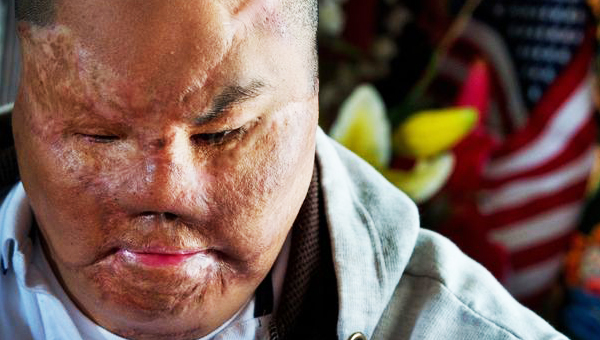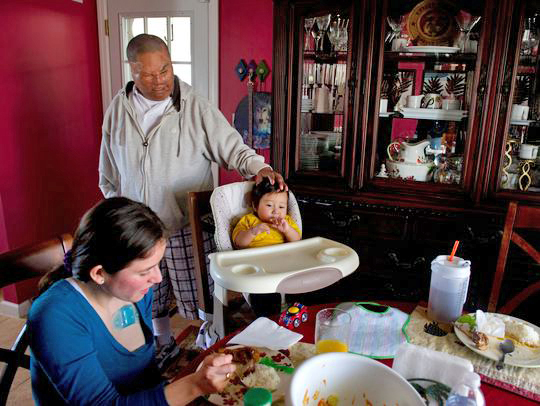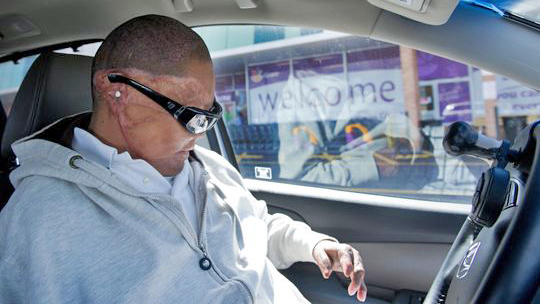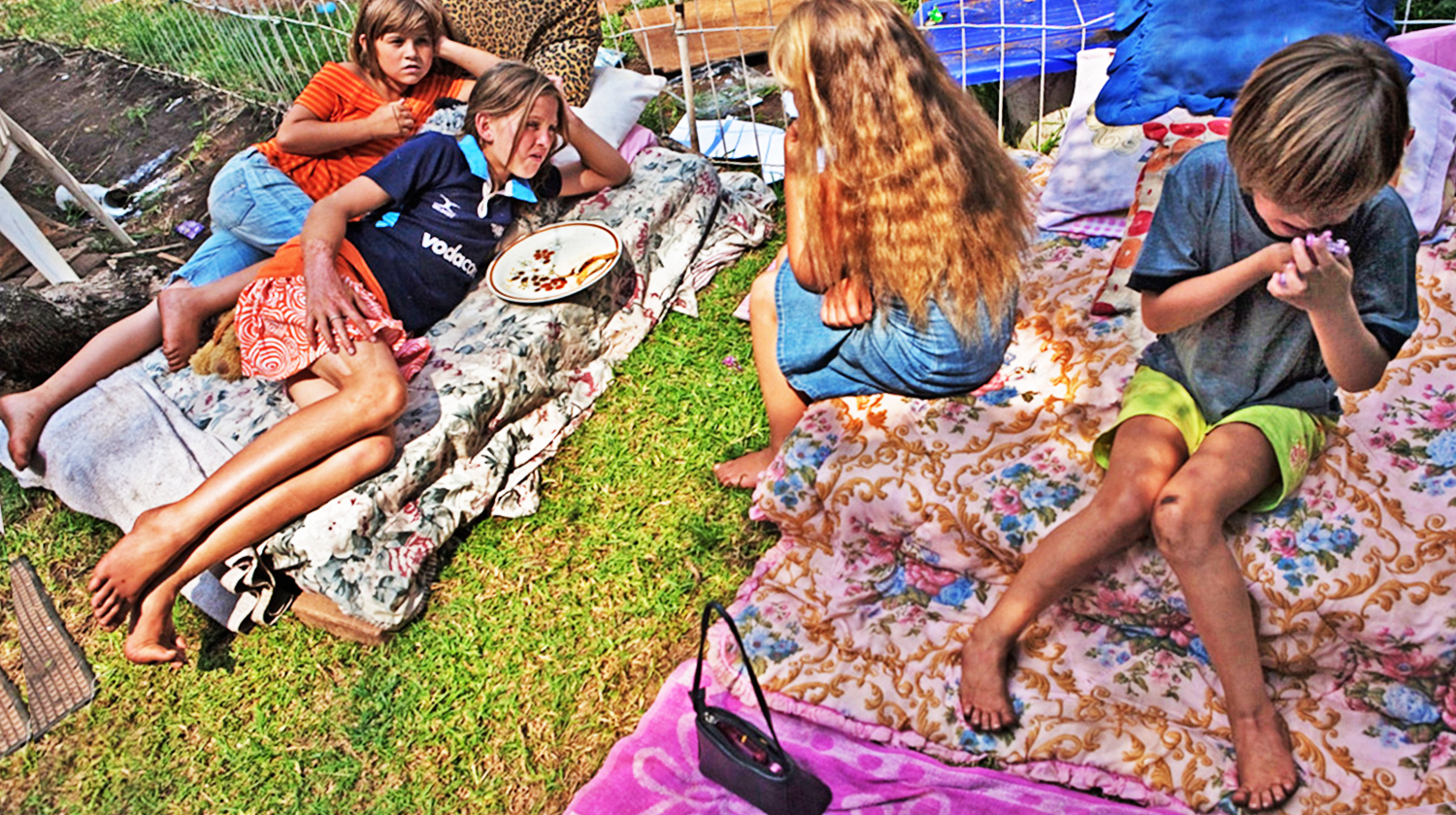You Are Not Forgotten by Ordinary US People Ronny

YOU ARE NOT FORGOTTEN:
Gregg Zoroya and Alan Gomez-USA Today
Read comments below article made by MARTY MARTEL
BELTSVILLE, MD. — Six years have passed since a roadside bomb set Ronny “Tony” Porta on fire in Iraq when he was 20, and he’s still trying to find his way home.
Each reflection in the mirror bears witness to why that is not easy.
Every stranger who points or stares, every teenager who mocks with the word “monster” or couple that whisper behind his back that the disfigurement is the price for invading a country, tells Porta he hasn’t quite left the battlefield behind.
“This is home for me,” says Porta, 26, who grew up in suburban-Washington Beltsville after his family emigrated from Peru. “But sometimes, it’s kind of hard saying, ‘I am home.’’
Two months ago, a man approached Porta in a Home Depot. He stood studying the burns on Porta’s face and asked if a car accident was to blame. Porta, wearing a Marine Corps sweatshirt, said, no, it was an IED explosion in Iraq.
What really stuck with Porta and angers him still were the words the man said next: “Was it worth it?” Is it so difficult, Porta asks, to see that those who volunteer in defense of the nation know it can carry a price? “Freedom is not free,” he says, echoing an age-old American refrain.
There has been a seismic shift in how Americans see Iraq and Afghanistan veterans compared with the bitterness that greeted those returning from Vietnam. Yellow-ribbon car magnets and handshakes in airport concourses today are a far cry from the anti-war demonstrators who sneered at uniformed Americans decades ago.
Recent wars have left more than 1,100 major burn victims and 1,700 amputees among the nearly 50,000 combat casualties, and about 400,000 troops or veterans with post-traumatic stress disorder, mild traumatic brain injury or both.
They arrive in an America more supportive than in the past, but also more mystified about who they are. The scorched or dismembered or the emotionally distressed are even more alien, pollsters say. Asked whether they comprehend the problems troops or veterans face, 70% of the public conceded to Pew researchers in 2011: “not too well (or) not well at all.”
Just as the nation is still striving to absorb the 3.4 million who fought in Vietnam — witness the Veterans Administration’s decision in 2009 to compensate for lasting damage from Agent Orange — it might take decades to fathom the human cost for the 2.2 million who served in Iraq and Afghanistan.
Breaking down barriers to mental health care and shepherding troops through to civilian life are major priorities for the Pentagon and VA. But they’ve yet to dissolve a stigma against seeking therapy, a stubborn resistance by many employers to hire young veterans, or an alarming cross-current of self-destruction. Roughly 22 veterans commit suicide each day.
 “People don’t understand us,” Porta says.
“People don’t understand us,” Porta says.
Sure, the older clientele at the Shoprite down the street only shoot sideways glances at his reconstructed face when he picks through the vegetables there with this mother, Eva. But he needs Xanax before going to the Megamart 10 minutes away. The customers there for some reason are always more likely to stare, point or even make comments.
Elsie Moore, a VA licensed clinical social worker managing care of about a hundred severely wounded veterans, including Porta, says the nation is on a learning curve about accepting home the casualties of the Iraq and Afghanistan Wars.
“I don’t know that all of regular society is out there knowing what to do about that, or how to handle it,” Moore says. “It’s all of us who have to receive these folks home and make them feel comfortable to be here. This is their home.”
Marine Corps Commandant James Amos tracked Porta’s recovery closely, got to know him and echoes the same sentiments.
At his mother’s home in Beltsville, Md., Ronny Porta gets help with his shoes from his wife, Deicy. He was burned over 35% of his body. He had to have his right arm amputated and suffered facial disfigurement, the loss of his nose, damage to ears and eye sockets, and loss of fingers on his left hand.(Photo: Jack Gruber, USA TODAY)
“I just ask Americans to stop and pause after they make their first stare,” he says, “and automatically default to, ‘That’s a young man who has suffered. And I ought to go up and say thanks and just put my arm around him.'”
‘LIKE I WAS BURNING INSIDE’
It happened May 5, 2007, six days before his mother’s birthday. Just before the blast, Porta exchanged looks with two other Marines in his armored Humvee: Master Sgt. Kenneth Mack, 42, of Fort Worth and Cpl. Charles Palmer II, 36, of Manteca, Calif.
They were his best friends. The three were part of a convoy carrying building supplies in Al Anbar province when the bomb exploded beneath their truck. Mack and Palmer were killed in an instant. Porta, in the driver’s seat, was on fire.
He remembers it all. The blackness inside an inferno. The strangely painless exhaustion. The temptation to just go ahead and die.
Then the driver’s door opening, the mystical presence of a long-deceased godmother leading him away from the burning truck, and his dead Marine buddies urging him on.
Rescuers rushed to douse the flames, and all of a sudden, he was in agony. “It was like I was burning inside. I felt it on my face. I felt it on my brain. It felt like I was talking with fire.”
Something was dripping onto the ground. “It was my skin,” he says, strangely calm in the telling of that horrific detail.
Porta was scorched across his face and all four limbs. In places, the fire burned through to muscle and bone. His right arm was amputated at the shoulder joint.
“I wasn’t sure he was going to live when we saw him in intensive care,” Amos says. “He was like a lot of our burn patients and amputees, just hanging on to life.”
He quite literally lost his face and underwent 128 surgeries, mostly at Brooke Army Medical Center in San Antonio, to rebuild it along with the burned flesh on his left arm and both legs. Skin grafts from his torso left flesh that survived fire a scarred ruin. His left hand was saved with some of the finger joints fused; surgeons made it possible for Porta to retain the ability to grip. Doctors also diagnosed him with PTSD and moderate TBI.
Plastic and reconstructive surgeons at the non-profit UCLA Operation Mend in Los Angeles rebuilt Porta’s mouth, nose and around his left eye, removing scar tissue covering his right eye.
His mother and, eventually, younger sister, Natalie, now 23, uprooted their lives from Beltsville to care for Porta during five years of surgery and convalescence in San Antonio. The ordeal damaged his parents’ marriage.
“Parents aren’t ready to deal with that,” says Eva Porta, 43. “There’s no psychologist to help you. We have to do so much to help them, and sometimes we don’t really know what to do.”
Tony’s father could not be reached for comment.
It was about four months after the explosion when Porta dared to look into the mirror.
“I couldn’t see myself,” he recalls. “I thought, ‘Who’s going to love me now?'”
 Ronny Porta rubs his son Kenneth’s head while eating breakfast along with wife Deicy, 23, in Beltsville, Md.(Photo: Jack Gruber, USA TODAY)
Ronny Porta rubs his son Kenneth’s head while eating breakfast along with wife Deicy, 23, in Beltsville, Md.(Photo: Jack Gruber, USA TODAY)
THEN CAME LOVE
The woman he would marry would not see his face for the first year of their online relationship.
Tony Porta and Deicy (pronounced Daisy) Sanchez met through friends on the Internet — she a teenage nurse in Bogota, Colombia; he a mysterious American in San Antonio who had somehow been hurt.
He became like a living diary for her, listening to her problems, with a sweet voice and an affable laugh. When they began using Skype, he could see her, but she could not see him. It clearly wasn’t time for Tony to reveal himself.
“I have something to show you,” he finally told her one day in August 2010 and sent her an e-mailed image that revealed his burned features. “You don’t have to say anything. If you don’t want to keep talking to me, I understand.”
She had nursed disfigured children in Colombia. Now the mystery about her friend was solved.
“I told him, ‘Don’t be so foolish,'” she said.
They met in Peru. She came to the USA in 2011. They married before a justice of the peace in San Antonio early last year. On May 10 last year, Deicy Porta gave birth to a son. At Tony’s suggestion, the couple named him Kenneth Charles Porta, after the two Marines who died in the explosion. The birth came one day before Porta finally received medical retirement from the service in a ceremony Amos attended.
The event was freighted with meaning for Porta, whose devotion to the Marine Corps has never waned. He joined in 2005 right out of high school, grateful to serve a nation that had made a place for his family. He became an American citizen in that uniform. And despite a life now fraught with pain, limitations and endless medical care, he says he has no regrets.
“If God were to give me a second chance to do it all over again, I would have done it one more time,” Porta says. “I always, and will always, love the Marine Corps.”
Last December, with a new family and new dreams of moving his life forward, Porta traded the cloistered care at Brooks Army hospital for the cul-de-sac home of his parents in Beltsville.
There were harsh realities. Burn victims were a common sight in neighborhoods around the burn center. People would even help carry his groceries at a store. Not the case when Porta ventured into the Maryland community.
Children would point and exclaim. Adults, such as the man who inquired about whether it was “worth it,” would approach with questions or comments.
A chiropractor near his home declined to take him as a patient. While waiting for his wife at a salon in the Wheaton Mall, Tony chatted with a woman nearby. When his infant son began crying and Porta struggled with one arm to gather him up, rather than assisting him, the woman stood and walked away.
“The way they look at me was like if I have a disease or something that could be contagious,” Porta says.
“If it was you and someone kept staring at you and staring at you — it’s uncomfortable. It’s intimidating,” Deicy Porta, 22, says. “Instead of saying something, I freeze. I don’t know what to do. I want to scream at them.”
Often, she grabs his hand and leads him away.
Friends marvel at how people miss the person beneath the ravaged skin.
“Once, he starts talking to you … his scars disappear, and you do see and feel that person of Tony Porta,” says James Williams, a physician assistant at Brooke Army hospital. “He’s just a remarkable guy and very brave.”
“He’s handsome on the inside,” Amos says. “There’s not a kinder, more faithful, loving young man than Ronny Porta.”
Marine Cpl. Ronny Porta drives to a grocery store in Beltsville, Md., in his specially equipped van. What excites him most, however, is moving his family to tiny Lovettsville, Va. He hopes to build a home there later this year on a 7-acre parcel with help from a non-profit group, the Semper Fi Fund.(Photo: Jack Gruber, USA TODAY)
 HEALING ‘FROM THE INSIDE’
HEALING ‘FROM THE INSIDE’
The Veterans Affairs Medical Center in Washington is a kind of sanctuary. The mental health counseling, group sessions, cognitive rehabilitation, occupational therapy and medical care offer a respite from the world outside.
And the VA helps with the relentless task of simply living with Porta’s wounds — the nightmares, the headaches, insomnia, the joint and limb pain, the way his skin feels brittle as if it’s “going to break.” He’s prone to aggressive scarring, and rough new tissue constantly threatens to narrow nose or ear canals or sight in his right eye.
He hopes someday to tolerate reactions about his appearance well enough to attend college and study social work, perhaps with the goal of working with other veterans to help ease their transition back to the world.
What excites him most is moving his family yet again, this time to tiny Lovettsville, Va., farther away from his home just outside of Washington. He hopes to build a home there this year on a 7-acre parcel with help from a non-profit group, the Semper Fi Fund.
Porta says he believes he will be more accepted in a small town. “They can know me a lot faster there than in this huge city,” he says. “I’m doing this for my son, because I don’t want him to be called names whenever he goes to school.”
He’s also mindful of what his therapists counsel: It is difficult to change how people react to him, better to change how he reacts to people.
Porta says he knows this but is not quite there yet.
“It’s really hard,” he says. “I need to heal from the inside. That’s the one that needs to take a long time.”
 Hi Everyone: I am going to start sending out email news again, probably next week. I am still doing my Off The Cuff News and I hope you are listening, but there are some news articles that need to be send to you via email. The above is a story that I have kept stored in my computer for several weeks, because I was having a difficult time understanding what our government tells us, they are doing for our military men and women who have been injured in our wars, in countries that give us no respect, and we give them what should rightfully stay home.
Hi Everyone: I am going to start sending out email news again, probably next week. I am still doing my Off The Cuff News and I hope you are listening, but there are some news articles that need to be send to you via email. The above is a story that I have kept stored in my computer for several weeks, because I was having a difficult time understanding what our government tells us, they are doing for our military men and women who have been injured in our wars, in countries that give us no respect, and we give them what should rightfully stay home.
When I think of how our men and women put themselves in harms way for our peace and protection, it amazes me that the U.S. government do little to give back to them as much as humanely possible to make their lives easier to bear. Our government talks a lot, but does not do a lot. Lip service is the first thing that comes to my mind. We owe these men and women so much for what they suffer, even though there are some who have not been injured or lost their lives. The families of these brave men and women have to deal with our government, who does not seem to be able to take care of this, but our government will give millions of our dollars to nations that cannot or will not fight their own battles. Enough said, but I hope you have read the article, and I have put in bold letters some of the statements made that might interest you in the reactions of many.
Marty Martel 2013





I’m deeply saddened by the fact that so few people can express any gratitude for the service that our military personnel have sacrificially rendered. Tragically our modern culture does not include the expression of thanks to those who serve. Entitlement has become the attitude of choice and it has spread its self centered coldness right across the full spectrum of social interaction. To the point that we have become shallow and uncaring. This article only proves my point that the greatest of sacrifices, made selflessly for our benefit, is met with silence and misunderstanding. The tragedy of this is ongoing and will continue injuring those who have given so much for so little in return. It reminds me of that famous quote, never have so few given so much for so many. I might add, and with so little grateful response. At least some of us recognize the price that was paid for the freedom we enjoy and are thankful for the princess gift young people like this soldier have provided.